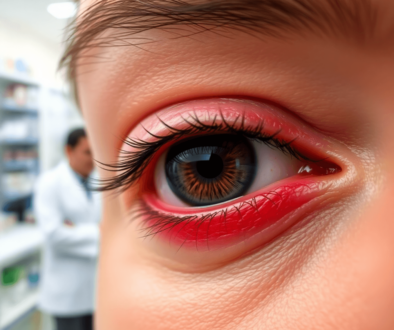Malaria Prevention from an Ontario Pharmacist: What to Ask
Malaria is still a serious global health issue, especially for travelers going from Ontario to tropical and subtropical areas. This disease, spread by mosquitoes, can have severe consequences such as serious illness or even death if not prevented or treated properly. It’s crucial to understand the risks of malaria before you travel in order to protect your health.
Getting professional travel health advice is essential for creating effective malaria prevention strategies that are specific to your travel destination and personal health profile. Pharmacists in Ontario are increasingly accessible healthcare professionals who offer specialized consultations focused on travel-related illnesses like malaria.
This article explores the role of Ontario pharmacists in malaria prevention. You will discover what questions to ask, how pharmacists evaluate malaria risk, and the practical measures you can take to safeguard yourself during international trips. By preparing with expert guidance, you enhance your chances of having a safe and healthy journey.
Pharmacists in Ontario not only provide travel health advice but also offer personalized pharmaceutical care, which is becoming the future of patient-centered service. This approach can significantly improve your healthcare experience by tailoring it to meet your specific needs.
Moreover, it’s worth noting that Ontario pharmacists have the capability to prescribe for skin conditions as well. This expands their role in healthcare beyond just providing medication, making them a valuable resource for various health concerns.
In addition, if you require prescription renewals while preparing for your trip, there are ways to request prescription renewals without seeing your doctor in Ontario. This can be done using online consults with pharmacists and telehealth services, providing a convenient solution for travelers.
Understanding Malaria and Its Risks
Malaria is a serious tropical disease caused by Plasmodium parasites, transmitted to humans through the bite of infected female Anopheles mosquitoes. This infection primarily occurs in regions with warm climates, including parts of sub-Saharan Africa, Southeast Asia, Central and South America, and some areas of the Middle East.
Key points about malaria infection:
- Transmission: Mosquito bites introduce the parasite into the bloodstream, where it multiplies in red blood cells.
- High-risk areas: Travelers to malaria-endemic countries face increased exposure risk, especially in rural or forested regions.
- Symptoms: Early signs include fever, chills, headache, muscle aches, and fatigue. Symptoms can resemble those of other tropical diseases, making diagnosis challenging without proper testing.
Untreated malaria can progress rapidly and become life-threatening. Serious complications include:
- Severe anemia due to destruction of red blood cells
- Cerebral malaria causing seizures or coma
- Organ failure affecting kidneys, lungs, or liver
Prompt diagnosis and treatment are essential to prevent these outcomes. Recognizing malaria symptoms early during or after travel is critical for seeking timely medical care.
In addition to understanding malaria risks, it’s also important to be aware of potential health issues that may arise from other conditions. For instance, if a traveler has a vitamin B12 deficiency which may complicate their health status during a malaria infection, they might want to consider B12 injections as a treatment option.
Furthermore, travelers should always be cautious about drug interactions with common supplements they might be taking alongside their prescribed medications.
Lastly, with the rise of online pharmacies, it’s crucial to address common misconceptions about online prescription safety, ensuring that medication use remains safe and effective. Understanding these risks lays a foundation for effective prevention strategies discussed next with your Ontario pharmacist.
The Role of an Ontario Pharmacist in Malaria Prevention
Pharmacists in Ontario offer travel consultations tailored to your individual needs, including malaria prevention strategies. Through an Ontario pharmacist travel consultation, you receive a comprehensive review of your health status, travel itinerary, and potential risks. This assessment allows pharmacists to prescribe appropriate anti-malarial medications under their authority for minor ailments related to travel health.
Key functions of pharmacists in this area include:
- Personalized travel health advice based on destination-specific malaria risk, duration of stay, and other personal factors.
- Prescribing anti-malarial drugs that suit your health profile and consider possible drug interactions.
- Guidance on non-drug preventive measures, such as insect repellents and protective clothing.
Consulting a pharmacist before traveling to malaria-endemic areas offers several advantages:
- Access to expert recommendations without the need for a physician’s referral.
- Timely prescriptions ensuring you start preventive medication at the correct time.
- Convenient, accessible appointments often available at local pharmacies.
- Opportunity to discuss concerns about side effects or contraindications with professionals knowledgeable about medication safety.
This proactive approach by Ontario pharmacists enhances traveler safety by equipping you with the right tools and information to minimize malaria risk effectively.
Pre-Travel Health Assessment with Your Pharmacist
The pre-travel health assessment is a crucial step in ensuring effective malaria prevention before embarking on your journey. Here are the key points to consider:
-
Scheduling Early Consultation: It is vital to schedule a consultation with your Ontario pharmacist at least six weeks before your departure date. This timeframe allows for a comprehensive assessment and ample time for necessary preparations, including obtaining and preparing medications.
-
Assessment Factors: During the consultation, your pharmacist will consider various factors to tailor the malaria prevention strategy to your specific needs. Factors such as your age, destination, duration of stay, and planned activities play a significant role in determining the most suitable approach to prevent malaria effectively. For instance, if you are traveling with children, special considerations will be taken into account for their safety and health.
By proactively engaging in a pre-travel health assessment with your Ontario pharmacist, you can ensure that you receive personalized recommendations and appropriate anti-malarial medications based on your individual risk profile and travel plans. This early intervention significantly enhances the effectiveness of malaria prevention strategies and promotes a safer travel experience.
Key Questions to Ask Your Ontario Pharmacist About Malaria Prevention
When preparing for travel to malaria-risk areas, having a clear travel health checklist focused on malaria prevention is essential. You want to approach your pharmacist with specific questions to ensure you receive the best guidance tailored to your trip.
Recommended Anti-Malarial Medications
Ask these questions to understand the specific anti-malarial medications you should take:
- Which anti-malarial medication is most suitable for your destination? Different regions may require different drugs based on local resistance patterns.
- What is the correct timing for starting the medication before travel, how long should you continue during the trip, and when should you stop after returning home? Some medications require starting 1-2 weeks prior, others just days before.
- What are the dosage instructions and what should you do if a dose is missed? If you’re traveling with children, it might be beneficial to refer to this guide on managing children’s medications and dosages safely.
Potential Side Effects and Drug Interactions
Inquire about these aspects to ensure you are aware of any potential side effects or interactions:
- What are the common side effects such as nausea, dizziness, or vivid dreams that may occur with certain anti-malarials? Understanding [how pharmacies help manage side effects from new medications](https://misterpharmacist.com/uncategorized/how-pharmacies-help-manage-side-effects-from-new-medications-2025) can provide valuable insights.
- Discuss any current medications or supplements you take to identify possible drug interactions.
- Understand how side effects might affect your daily activities while traveling and when to seek medical advice.
Asking detailed questions about anti-malarial medication guidance will help you take these preventive drugs safely and effectively during your journey. Your pharmacist’s expertise ensures you are well-informed about both the benefits and precautions related to malaria prevention medications.
Protecting Yourself Against Mosquito Bites and Other Travel Health Considerations
Malaria prevention requires more than just taking anti-malarial medications. Mosquito bite prevention plays a crucial role in reducing your risk of infection. Understanding effective strategies for avoiding bites can significantly enhance your protection during travel.
Insect Repellents
Using insect repellents containing DEET is one of the most reliable methods to keep mosquitoes at bay. DEET-based products offer long-lasting protection and are recommended by health authorities worldwide. If you prefer alternatives, look for repellents with picaridin or oil of lemon eucalyptus, which also provide effective mosquito deterrence with potentially fewer side effects.
Clothing Choices
Wearing appropriate clothing minimizes skin exposure during peak mosquito activity, which is typically from dusk to dawn. Choose long-sleeved shirts, long pants, and socks made from tightly woven fabrics. Light-colored clothing is preferable since it attracts fewer mosquitoes compared to dark colors.
Insecticide-Treated Nets
Sleeping under insecticide-treated nets provides additional protection, especially in areas with high malaria transmission. These nets create a physical barrier while also killing or repelling mosquitoes that come into contact with them.
Combining these measures with prescribed anti-malarial drugs strengthens your defense against malaria. Your Ontario pharmacist can guide you on selecting suitable repellents and protective gear tailored to your destination and personal preferences.
Additional Vaccinations and Travel Health Considerations with Your Pharmacist’s Guidance
Clarifying that while no vaccine currently exists for malaria, other vaccines may be necessary depending on your travel destination. Pharmacists play a vital role in advising on updating immunizations relevant to the trip.
-
Travel Vaccinations Ontario Pharmacist Advice: Pharmacists can provide personalized recommendations on required vaccinations based on your specific travel itinerary. They consider factors like destination, duration of stay, and planned activities to ensure adequate protection.
-
Yellow Fever Vaccine: Depending on your travel plans, particularly if you are visiting countries where yellow fever is endemic, your pharmacist may recommend getting the yellow fever vaccine. This vaccine is often a mandatory entry requirement for travelers coming from high-risk areas.
-
Typhoid and Hepatitis Vaccination: These vaccines are essential for travelers visiting regions where these diseases are prevalent. Your pharmacist can assess your risk and advise you on the necessity of these vaccinations based on your travel destination.
-
Malaria Prevention from an Ontario Pharmacist: What to Ask: When consulting your pharmacist before traveling, inquire about any additional vaccines recommended for your trip. Be prepared to discuss your itinerary in detail to receive tailored advice on necessary immunizations for a safe and healthy journey.
Medication Management While Traveling and What To Do If You Develop Malaria Symptoms Abroad or After Returning Home
Carrying prescriptions abroad is essential when traveling with anti-malarial medications. You should bring the original packaging and a copy of your prescription to comply with medication customs regulations in different countries. This documentation helps avoid delays or confiscation at border controls, ensuring you have access to your prescribed drugs throughout your trip.
Be Aware of Malaria Symptoms
Be aware of the early signs and symptoms of malaria, which may include:
- Fever and chills
- Headache
- Muscle aches
- Fatigue
- Nausea or vomiting
Symptoms can appear during travel or even weeks after returning home. Prompt recognition is critical because untreated malaria can lead to severe complications. If you experience any of these symptoms while abroad or after your return, seek medical attention immediately. Inform healthcare providers about your recent travel to malaria-risk areas and any anti-malarial medication you have taken.
Follow Prescribed Medication Regimen
Proper medication management means adhering strictly to the prescribed regimen: starting before entering the malaria zone, taking doses consistently during the stay, and completing the full course after leaving the area. Avoid missing doses, as this reduces effectiveness and increases resistance risk.
Consider Other Health Aspects
While managing your anti-malarial medication, it’s also important to consider other health aspects such as allergies or potential urinary tract infections (UTIs). For instance, if you have a history of allergies, managing those with over-the-counter and prescription options can greatly enhance your comfort while traveling. Similarly, if you start experiencing symptoms related to a bladder infection, it’s crucial to recognize these signs early for effective treatment.
Following these guidelines ensures that you maintain protection against malaria while traveling and receive timely care if needed.
Travel Health Insurance Recommendations for Comprehensive Protection During Your Trip
Understanding the Limitations of Provincial Health Plans
When traveling abroad, it’s crucial to recognize that provincial health plans, which are part of the Canada Health Care System, may not provide full coverage for medical expenses incurred outside of Canada. This gap in coverage underscores the necessity of obtaining comprehensive travel health insurance specifically designed to safeguard against unforeseen medical costs while you are away from Ontario.
The Importance of Medical Evacuation Coverage
In addition to regular healthcare expenses, such as hospital visits or doctor consultations, comprehensive travel health insurance can offer vital protection in the form of medical evacuation coverage. This type of coverage ensures that you can access emergency medical transportation services if needed, guaranteeing prompt and safe repatriation to Ontario or specialized medical facilities in case of a severe health emergency during your travels.
Considering Ongoing Healthcare Needs
Moreover, it’s important to consider your ongoing healthcare needs while traveling. For instance, if you require mental health medications, understanding their types, dosage, effects, and how personalized plans aid treatment success can be crucial. Similarly, if you’re on a weight loss program involving injections like Ozempic or Mounjaro, knowing which weight loss injection is right for you can significantly impact your health goals.
The Benefits of Investing in Travel Health Insurance
By investing in appropriate travel health insurance before your trip, you can enjoy peace of mind knowing that you are adequately protected against unexpected healthcare expenses and emergencies while exploring destinations with varying levels of medical infrastructure and services available to Ontario travelers. Additionally, considering how pharmacies are supporting mental health needs during your travels can enhance your overall healthcare experience.
Conclusion
When traveling to areas with a high risk of malaria, prioritizing your health is essential. Booking an appointment with MisterPharmacist online, a leading online pharmacy in Toronto, can significantly aid in your preparation. This service not only provides you with vital information but also ensures you have the necessary medications to stay protected during your trip.
MisterPharmacist’s innovative approach to telepharmacy enhances accessibility for all patients, including those with mobility limitations. By leveraging online pharmacy services, you can conveniently access the medications you need without the stress of traditional pharmacy visits.
Moreover, taking proactive steps before your journey can greatly safeguard your health abroad. Don’t hesitate to seek professional guidance and take the necessary precautions to enjoy a safe and worry-free travel experience.
FAQs (Frequently Asked Questions)
Why is it important to consult an Ontario pharmacist for malaria prevention before traveling?
Consulting an Ontario pharmacist before traveling is crucial because pharmacists provide personalized travel health consultations, assess malaria risk based on your destination and activities, and can prescribe appropriate anti-malarial medications. This professional advice ensures effective prevention strategies tailored to your specific travel plans.
What should I expect during a pre-travel health assessment with my Ontario pharmacist?
During a pre-travel health assessment, your Ontario pharmacist will evaluate factors such as your age, travel destination, duration of stay, and planned activities. This helps determine the appropriate anti-malarial medication and other preventive measures. Scheduling this consultation at least six weeks before departure allows sufficient time for medication preparation and travel health planning.
Which anti-malarial medications might an Ontario pharmacist recommend for travelers?
An Ontario pharmacist can recommend specific anti-malarial medications based on your travel destination and individual health profile. They will advise on the correct timing and duration of medication use to maximize effectiveness while informing you about possible side effects and drug interactions to watch for during your trip.
Besides taking anti-malarial drugs, how can I protect myself against mosquito bites while traveling?
Effective protection includes using insect repellents containing DEET or alternatives like picaridin or oil of lemon eucalyptus, wearing appropriate clothing that covers skin especially during peak mosquito activity times (dusk to dawn), and using insecticide-treated nets when sleeping. These measures complement medication to reduce the risk of malaria infection.
Are there any vaccines I should consider in addition to malaria prevention when traveling?
While no vaccine currently exists for malaria, other vaccinations such as yellow fever, typhoid, or hepatitis may be necessary depending on your travel destination. Your Ontario pharmacist can advise on updating immunizations relevant to your trip as part of comprehensive travel health planning.
What should I do if I develop malaria symptoms while abroad or after returning home?
If you experience early signs or symptoms of malaria during or after your trip, seek medical attention promptly as untreated malaria can lead to severe complications. Always carry prescriptions and original packaging of anti-malarial medications when traveling to avoid customs issues and ensure proper treatment continuity.



